Wanted: one chairman of the Conservative Party
What qualities might a successor to Nadhim Zahawi require to be an effective party chairman?
Necessity is the mother of invention, the adage goes, but frequently that necessity arises out of failure and admission of defeated. In 1910, there were two general elections bookending the year, January and December, to allow the Liberal government to push through Parliament the April 1909 Budget, dubbed “the People’s Budget” because of its populist, redistributive provisions. Prima facie, it was the Liberal Party which won that year’s battles, as it remained in power, fettered the House of Lords through the Parliament Act 1911 and had the Finance (1909-10) Act 1910 passed to enact the Budget.
The Conservative Party, and its partner the Liberal Unionist Party which had fielded 75 candidates in December, certainly regarded 1910 as a year of failure. At that point, a parliament could still last for up to seven years, so from that vantage point they might be out of power till 1917; the Conservative leader, A.J. Balfour, had now lost three general elections in a row and would resign in late 1911. There was, therefore, an impetus for renewal and change, and the spotlight came to rest on the party organisation. In 1910, Conservative Central Office (CCO), which was almost 40 years old, was under the direction of a principal agent—at that point J. Percival Hughes—who was in turn supervised by the party’s chief whip in the House of Commons.
A review and reform of the party organisation in 1911 resulted in a more systematic organisation of the departments within CCO and, importantly, the creation of the posts of chairman and treasurer of the party. It was intended initially that the former would be “of cabinet rank” when the Conservatives were in power, providing a link between the administration and the structure of the party. Balfour was able to duck the “cabinet rank” recommendation slightly, as the party was in opposition, and he first chairman appointed was a 35-year-old newly elected West Midlands Member, Arthur Steel-Maitland (Con, Birmingham East). From military families on his father’s and mother’s sides, he had been educated at Rugby and Balliol College, Oxford, in the hothouse atmosphere of which he had blossomed: he was an Eldon Scholar in 1899, took a first-class degree in literae humaniores and jurisprudence and was elected a fellow of All Souls’ College in 1900.
Over the weekend, following an inquiry by Sir Laurie Magnus, the independent adviser on the Minister’ Interests, and stinging criticism directed at Nadhim Zahawi, the minister without portfolio and chairman of the Conservative Party, the prime minister took the decision to sack Zahawi. Having promised to run a government characterised by integrity, professionalism and accountability, Rishi Sunak was really left with little choice. Having asked Magnus to investigate Zahawi’s dealings with HMRC and his tax liabilities, he could hardly then brush away and criticism and give the party chairman a clean bill of health. It now falls to the prime minister to choose a new candidate, so what does the chairman of the Conservative Party do, and what sort of person should Sunak and his advisers be looking for?
Perhaps the core responsibility of the chairman, though rarely the highest-profile, is the efficient management of the party apparatus, known since 2004 as Conservative Campaign Headquarters (CCHQ). It is responsible for all the party’s campaigning activities, though local campaigns are delegated to constituency associations, and controls the targeting of seats and the selection of candidates. CCHQ is based in the ground and basement floors of 4 Matthew Parker Street in Westminster. A good chairman must either be a diligent and efficient administrator, or else have the self-confidence and self-assurance to delegate this on a day-to-basis to someone else.
Indeed, since William Hague revamped the organisation in 1998, there has been a chief executive, the first being the successful retailer and turn-around specialist and new Conservative MP Archie Norman. His appointment was anticipated to bring some modern, business-like efficiency and rigour into CCO, but his personality did not quite fit the atmosphere and he did not stay in post long. The current chief executive of the party is Stephen Massey, an experienced banker and wealth manager who is another PPE graduate from Oxford. He also donated £25,000 to Rishi Sunak’s leadership campaign last year.
The most effective administrative head of the party was probably Lord Woolton, who was in charge from 1946 to 1955. Originally a successful retail businessman, he was brought into the wartime coalition government by Winston Churchill, first as minister of food, where he created the rationing system, and minister of reconstruction. After the party’s calamitous defeat in 1945, the incumbent chairman, Ralph Assheton, was eased out and Woolton, despite his apolitical background, was drafted in to reform and rebuild the hollowed-out shell of the Conservative Party after wartime inaction and a need to rebuild a sense of purpose and determination.
His wholesale shake-up of the party was essential: he reformed the finances, widened the party’s membership and in turn the pool from which candidates were selected, recruited and trained a new generation of election agents and strengthened the party’s research department to work on policy. The effect was electrifying: fresh and dynamic candidates were put in place and the intake of February 1950, the subsequent general election, was one of the best in the party’s history. By October 1951, the Attlee government, exhausted and divided, was defeated and the Labour Party was out of power for 13 years.
The party chairman is also often required to be a highly partisan attack dog. Every government, particularly as an election draws near, needs a media-savvy, fluent figure with a good head for details who can be deployed for media appearances at any opportunity. He or she must be an enthusiastic all-rounder, as happy putting on a serious face to discuss the situation in Ukraine as they are genially rubbishing the opposition’s fiscal plans. But the role requires stamina: for every appearance on Radio 4’s Today programme, there will be a dozen dinners at constituency associations across the Black Country, each with its own spin on rubber chicken.
A very successful campaigner was Cecil Parkinson in his first stint as chairman from 1981 to 1983 (he would return to the role for a year in 1997). He was the product of a grammar school and Emmanuel College, Cambridge, well-spoken but also somehow classless and Margaret Thatcher was attracted by his smooth and fluent media manner as well as his well-dressed good looks. Parkinson had represented the party in the “war cabinet” during the Falklands conflict and had gone on to lead a strong campaign in the 1983 general election, which delivered a handsome majority and a second term for Thatcher.
There are also times when a chairman is appointed to work on the party’s resources, in essence either finance or membership. Traditionally the Conservative Party has relied on big business and ultra-wealthy individual donors for the bulk of its income, but private enterprise is hard-headed and transactional, and will support the party only when it is in power or anticipates returning to government and can therefore deliver influence on policy for the donations it receives. At the same time, formal party membership across the political spectrum has been in general decline since 1950, and now stand at around 432,000 (Labour), 172,000 (Conservative), 104,000 (SNP) and 74,000 (Liberal Democrats). Members are essential to deliver campaigning efforts and other voluntary support and it is part of CCHQ’s brief to maximise the numbers.
Andrew Feldman was David Cameron’s oldest political friend. In 2010, he was ennobled as Lord Feldman of Elstree and appointed co-chairman of the party alongside Baroness Warsi. She was succeeded as co-chair in 2012 by Grant Shapps (Con, Welwyn Hatfield) and from 2015 to 2016 Feldman was sole chairman. He was a management consultant with Bain & Co before being called to the Bar in 1991, and after four years’ practice he moved to a business role with his family firm, Jayroma (London) Ltd.
Having overseen fundraising for David Cameron’s leadership campaign in 2005, as well as donating himself, it was Feldman’s job to shore up the party’s financial and human resources. He was able to stabilise declining membership and, from 2012, begin to grow it again, as well as making sure the party remained solvent and able to run campaigns as it wished. His efforts were rewarded by the Conservative Party winning the 2015 general election, its first outright win since 1992.
Of course, an ideal party chairman would combine all these qualities: a deft administrator, media star and fundraiser with sharp political antennae. But such accomplished candidates in politics are like unicorns. Which quality should the prime minister prioritise? The focus of the next chairman’s job will, of course, be the next general election, which must be held at the latest on 24 January 2025 under the provisions of the Dissolution and Calling of Parliament Act 2022. The task is formidable: politically the government is in the doldrums, trailing badly behind the Labour Party and heading for a predicted heavy defeat, beset by too many unforced errors, marked in the public eye by scandals and questionable decisions, and in power for approaching 13 years. Turning the party’s fortunes around, if it is possible, will be an enormous challenge.
As with any government which has been in office for a long time, Sunak’s administration will struggle to counter the electorate’s desire for a change. That is especially true if, as seems likely, we go to the polls still in the grip of unpromising circumstances, with inflation and the cost of living high and growth sluggish. (The reverse of that is the fact that even a modest economic improvement would be transformational.) So a great deal of the next general election (my best guess is the summer of 2024) will rely on the government’s ability convincingly to answer the question “Why?”
The government does not yet possess a persuasive narrative, and Sunak appears to have a less clear-cut ideological approach than his predecessor. Whatever Liz Truss’s faults in her oh-so-short premiership, she was relatively clear about her place on the political spectrum and it was quite possible to anticipate her views on various issues. Sunak is more nuanced, or perhaps more muddled. A good party chairman will help to create and then frame and promote a new election narrative. The Conservatives must find four or five simple, straightforward and concrete areas which will improve if they are returned to power, or the Labour Party will simply ride an itch of boredom to the door of Downing Street.
Unusually, even after Zahawi’s departure, the current cabinet includes three ministers who have already served as party chairman: the foreign secretary, James Cleverly (Con, Braintree); the Cabinet Office minister, Oliver Dowden (Con, Hertsmere); and the business, energy and industrial strategy secretary, Grant Shapps (Con, Welwyn Hatfield). In addition, Andrew Stephenson (Con, Pendle), a lord commissioner of the Treasury in the Whips’ Office, was briefly chairman from July to September 2022. Since the post’s creation in 1911, only Cecil Parkinson served twice, so it seems unlikely that any of those serving members of the government will be asked for an encore.
Filling the chairmanship is difficult. The ideal candidate will be both a big beast in his or her own right, yet loyal and not representing a threat to the leadership nor someone who will seek to build a rival power base. Thatcher fell out badly with Norman Tebbit during the 1987 general election campaign because she came to believe that he coveted her job (of which there is very little evidence). One way to avoid such a problem is to choose a peer, who cannot therefore aspire to Downing Street, but it is also a general rule that the best campaigners and media performers have been baptised in the fire of the House of Commons: Lord Carrington, who was chairman 1972-74 and had never sat in the elected House, hated his time at CCO and as campaigner-in-chief which didn’t play to his diplomacy and dry wit.
Many names are being bandied about. Two of the most implausible so far are Priti Patel (Con, Witham) and Boris Johnson (Con, Uxbridge and South Ruislip). On the former, it is not at all clear that Sunak would want to rehabilitate the controversial former home secretary nor would everyone agree that she had the media skills and intellectual lightness of foot to be party chairman. The latter will be suggested for almost every vacant post except mayor of Wetwang until he leaves public life, so eagerly do the true believers pray for a return. Loyalty is perhaps the most striking absence from Johnson’s political and emotional armoury, and it is not far ahead of discipline, so he would face considerable challenges running the party machine. He remains popular with some elements of the electorate and can be relied upon to find the political G-spot of the Conservative membership, but the idea of hims running a campaign and investing himself wholly in Rishi Sunak’s success is a difficult one to envisage. File under “won’t happen”.
The best communicators currently serving in cabinet are probably Michael Gove (Con, Surrey Heath), Ben Wallace (Con, Wyre and Preston North), Penny Mordaunt (Con, Portsmouth North) and Kemi Badenoch (Con, Saffron Walden). Wallace is unlikely to want to leave the Ministry of Defence while we are committed to supporting Ukraine against Russia, and Gove was brought back as levelling-up secretary after a four-month hiatus because he is regarded as the only minister even possibly capable of articulating and delivering the policy. That said, it is just possible that his restless intellect and the ambition to put levelling-up at the heart of an election campaign could persuade him to make the move. But I doubt it.
Penny Mordaunt has established a niche as leader of the House of Commons, using her weekly appearance at the despatch box every Thursday to deliver some stinging rebukes and solemn counter-blasts to the opposition and especially the SNP. She is not only responsible for the management of business in the House but also for the promotion of democracy and the institutions of government, so may be left where she is to continue tackling those issues. Kemi Badenoch was rumoured to be disappointed with the Department of International Trade and has not so far managed to leverage it for publicity in the way that Liz Truss (Con, South West Norfolk) was able to do. So perhaps a move to a wider brief might attract her and play to her supposed strengths and freshness. But she was one of the challengers to Sunak for the leadership, and the prime minister prizes loyalty above anything else.
Looking down the list of ministers, Greg Hands (Con, Chelsea and Fulham), minister of state for trade policy, is an enthusiastic performer always willing to exchange fire with opposition spokespeople, and has a relentless energy about him which might rouse moral at CCHQ. Dehenna Davison (Con, Bishop Auckland) has announced that she is stepping down at the general election, but she is a capable and polished advocate as well as representing a Red Wall seat, so perhaps the prime minister could prevail on her, as in a good heist film, for one last job before she retires.
Victoria Atkins (Con, Louth and Horncastle), financial secretary to the Treasury, has a warm and human manner and has executed ministerial office well, so might be a possible candidate. Matt Vickers (Con, Stockton South) is another young Tory from a Red Wall area (although Stockton South has a longer Conservative tradition than many North Eastern constituencies), and is already deputy chairman of the party. He would represent a degree of continuity and experience, and his appointment would not necessitate a ministerial reshuffle. However, he has no national profile to speak of, nor ministerial experience to add gravitas.
If the prime minister were to think further outside the box, there are potential wild cards. Theresa May (Con, Maidenhead) has enjoyed a surge in her popularity since leaving Downing Street in 2019, but it is difficult to imagine her summoning up the energy and willpower for a gruelling election campaign. Ben Houchen, mayor of the Tees Valley since 2017, enjoys extraordinary local popularity, being re-elected in 2021 with 72.8 per cent of the vote, and had achieved substantial success in investment and development in his area. He is only 36 and would bring a new face to the party; but Sunak may judge him too little known and untested.
Baroness Davidson of Lundin Links, the former leader of the Scottish Conservative and Unionist Party, retains a public profile, presenting a regular programme on Times Radio, and is approachable, witty and inclusive. She took the Scottish party to its greatest levels of success since the 1950s and is only in her mid-forties; although she has stepped back from frontline politics and is a non-executive director of Royal London, she had previously pledged to return to the fray if there were a second referendum on Scottish independence. Perhaps the future of the Conservative Party might be painted as a similarly urgent situation?
Of course, if Rishi Sunak really wanted to roll the dice, and seek a new party chairman who has radical, innovative instincts, enormous self-belief and has devoted an enormous amount of deep thought to the future of the United Kingdom, I think Dominic Cummings is easy enough to reach…




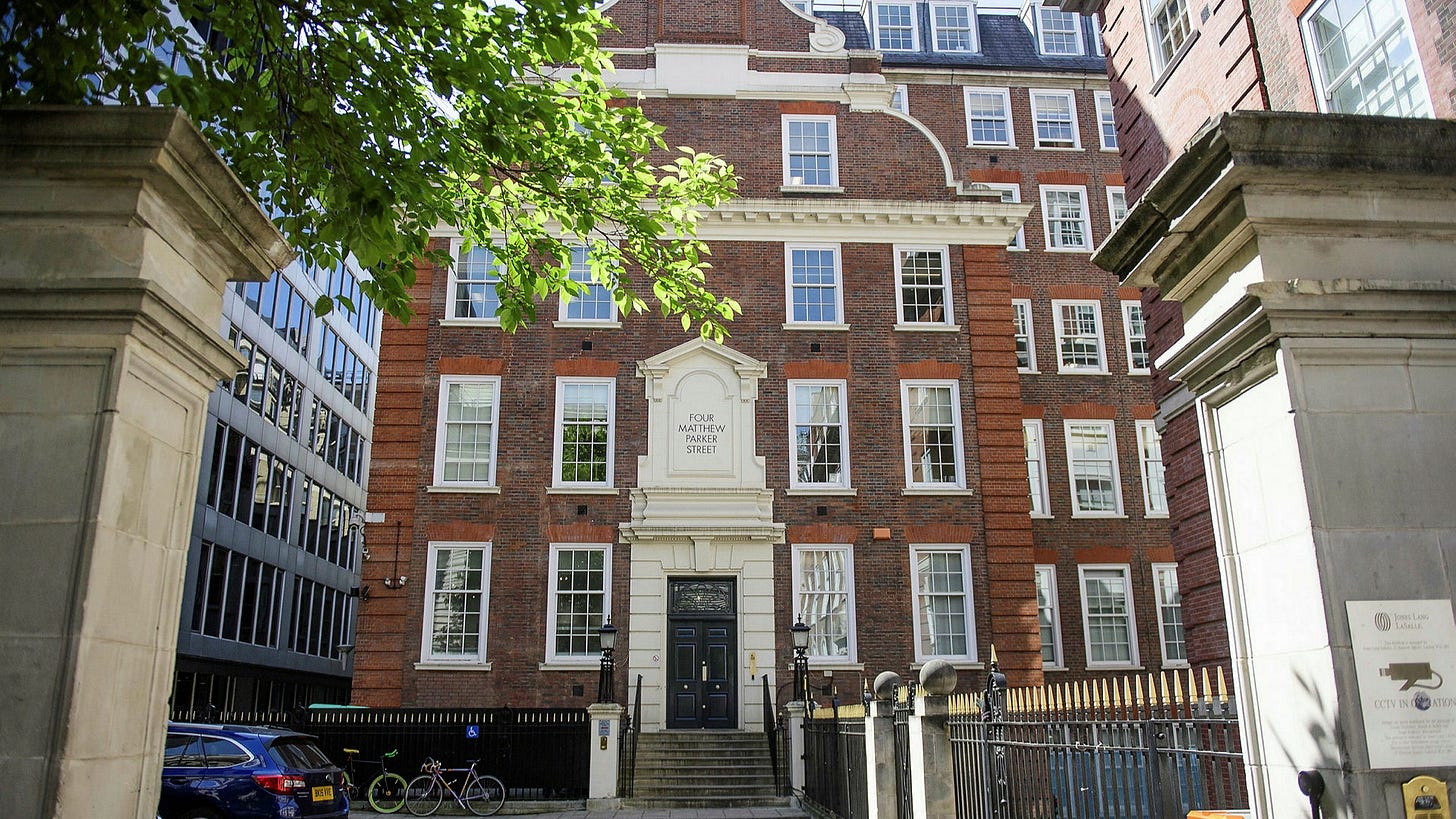
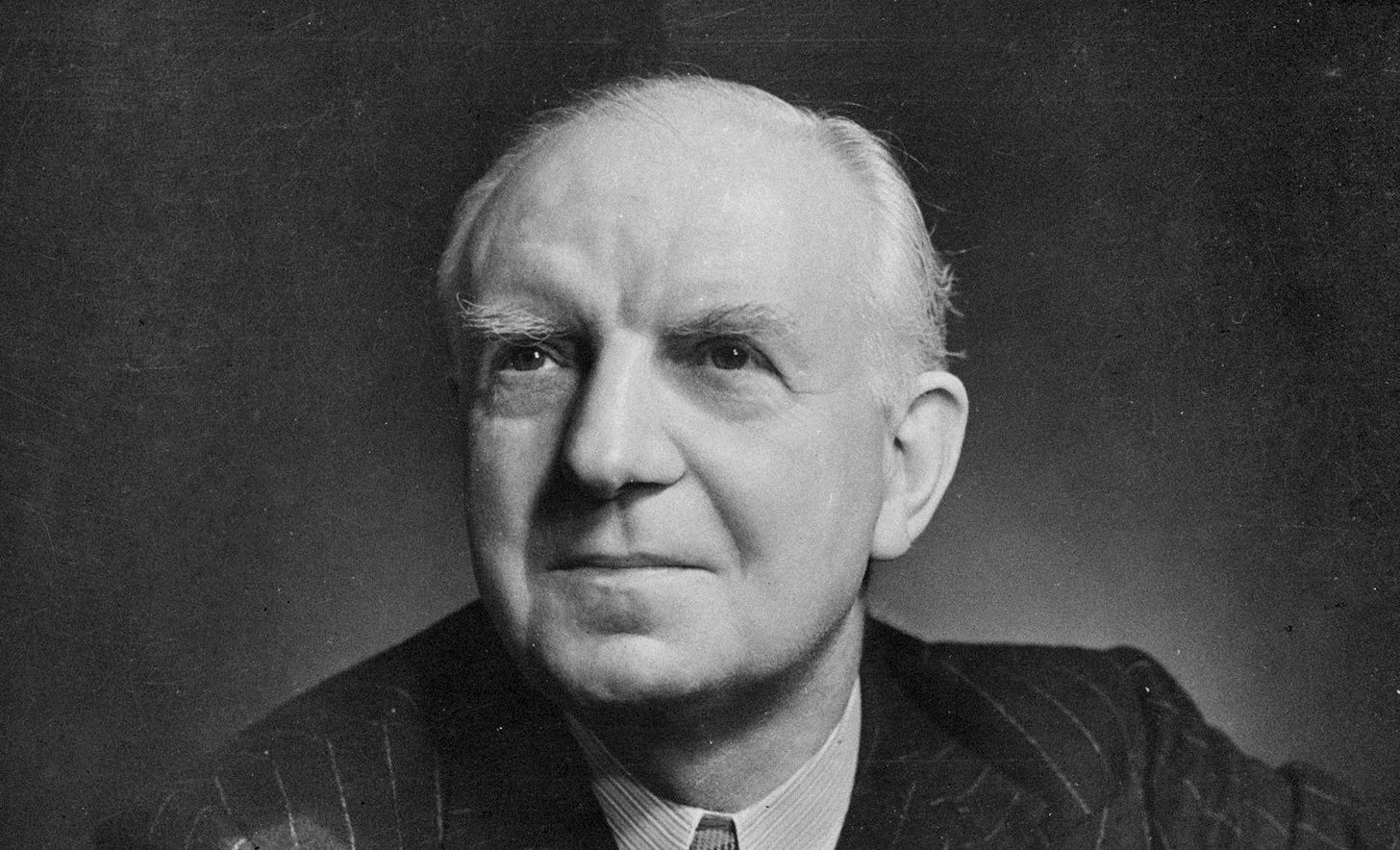

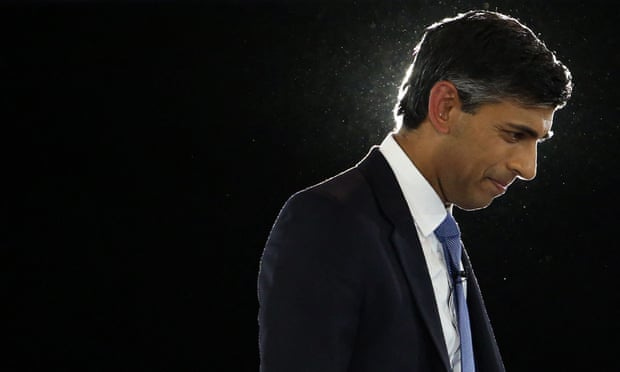
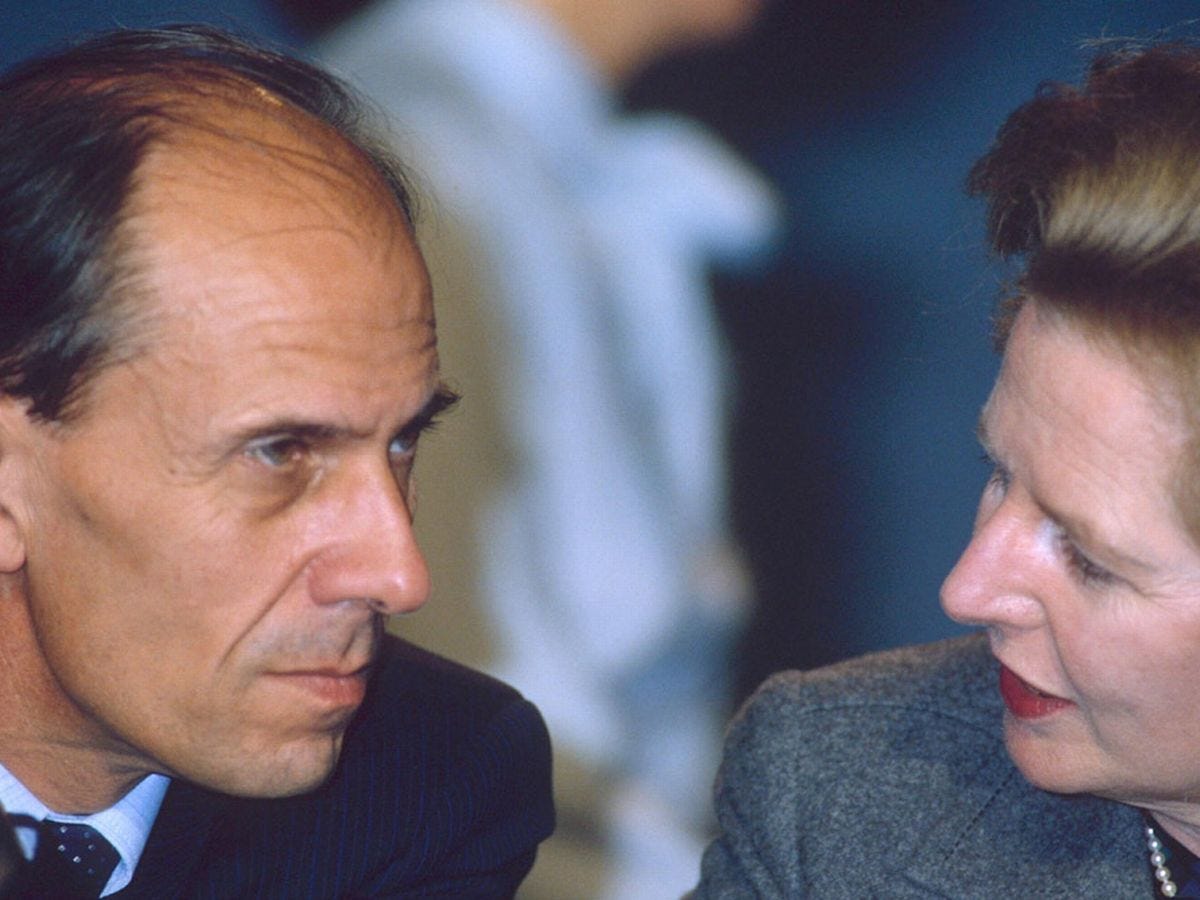
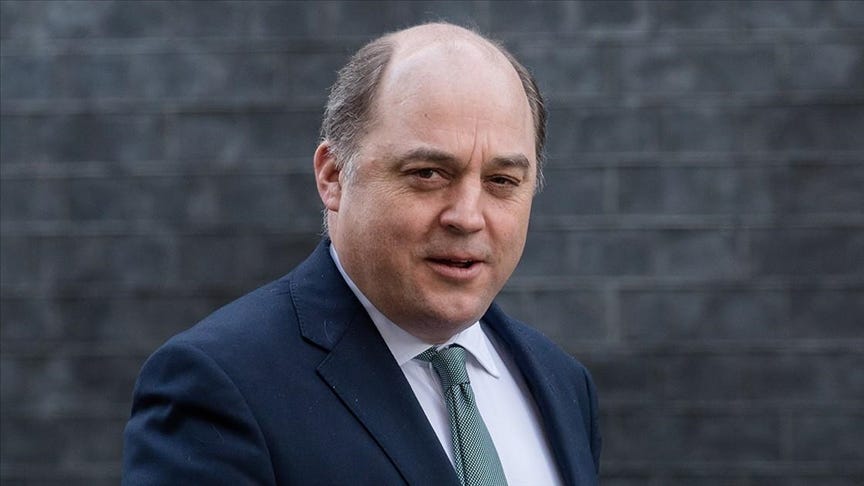


“general election (my best guess is the summer of 2024) “
Good work Elliot, everyone else thought Autumn or even winter. You are one of the few that called it right
Copied and pasted from the note that linked to this piece so others may share in the joy…..
Speaking of Torys and ‘exhume’ you just reminded me of my favourite ever political protest sign. To say the least, black and white TV was not kind to Alec Douglas-Home, there is footage of him entering a building with a small number of protesters outside, one holding a homemade sign that cruelly says
“Who exhumed you”
Makes me giggle just thinking about it, just so mean 😀😀😀